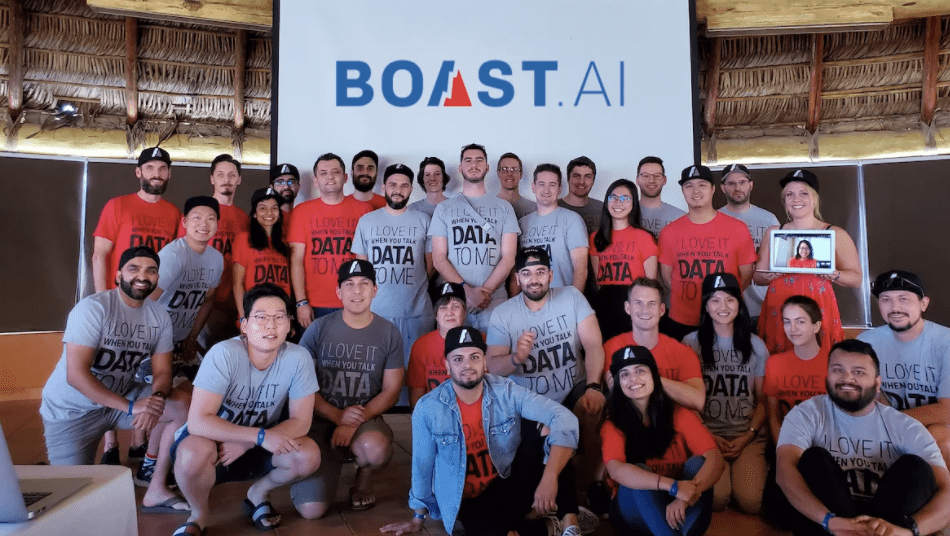Startups play a significant role in economic growth by developing new innovations that shape the future and create jobs. The global startup economy is worth over $3 trillion.
However, since the beginning of COVID-19, 74% of all startups have been forced to trim staff. The pandemic has also abruptly slowed venture capital investments which is the lifeblood of the startup economy – the number of venture capital rounds in the US alone is down by 44 percent.
While the US and Candian governments have made great efforts to provide funding through programs such as the Paycheck Protection Program (PPP) and Canada Wage Subsidy (CEWS), the Research and Development tax credit program is another key program to help startups with funding to innovate and create jobs.
Entrepreneurs Alex Popa and Lloyed Lobo started Boast.AI to help startups streamline the R&D Tax Credit application process.
Birth of Boast.AI
Having worked at a large accounting firm, Alex knew first hand the cumbersomeness of the R&D Tax Credit application process. Alex and Lloyed had been friends since college where their thesis was in Artificial Intelligence. Alex and Lloyed were discussing ways to streamline the R&D Tax Credit application process using artificial intelligence and Boast.AI was born. And within a limited time, Boast.AI has grown to hundreds of customers and has offices in San Francisco, Toronto, Calgary, and Vancouver.
Cumbersome R&D Tax Credit Application Process
Each year the US and Canadian governments provide billions of dollars in funding through the R&D Tax Credit program. US startups can use R&D Tax Credits to offset up to $250,000 per year in employer social security taxes, which typically comes as a refund check. In Canada, a refund of up to 64% of the R&D spend is given to Canadian Controlled Private Corporations through the Scientific Research and Experimental Develop (SR&ED) program.
However, it is not easy for startups who are already strapped for time to apply for the R&D Tax Credit due to several reasons. First, it is a time-consuming process requiring every project to meet certain eligibility criteria per the tax law. Secondly, they need to show that they encountered technological uncertainties while developing products for which no solution was available publicly. Documentation of the product development efforts is also a key requirement of the application process.
Streamlining the R&D Tax Credit Application Process
Boast.AI’s Research and Development Tax Credit management platform integrates with a company’s technical project tracking systems like Jira and Github and bookkeeping systems like Quickbooks in order to help identify and categorize the projects and associated expenses that are eligible for the R&D Tax Credit program.
Boast identifies eligible projects, prepares the technical and financial reports, prepares the R&D tax forms, and represents companies in the event of an R&D Tax Credit review by the authorities.
As a result of using Boast, companies are able to get larger refunds while drastically reducing the impact to their internal resources.
And the best part is that Boast doesn’t ask for a fee until the money is received from the government.

